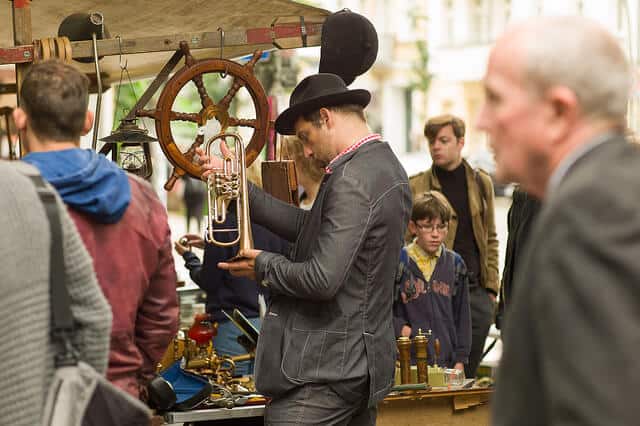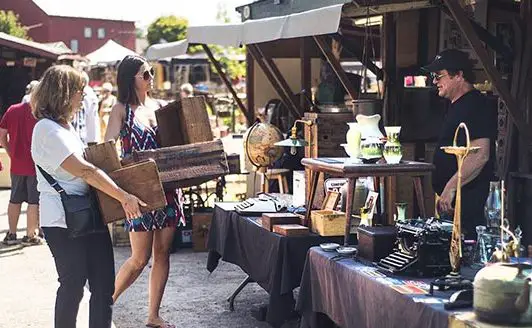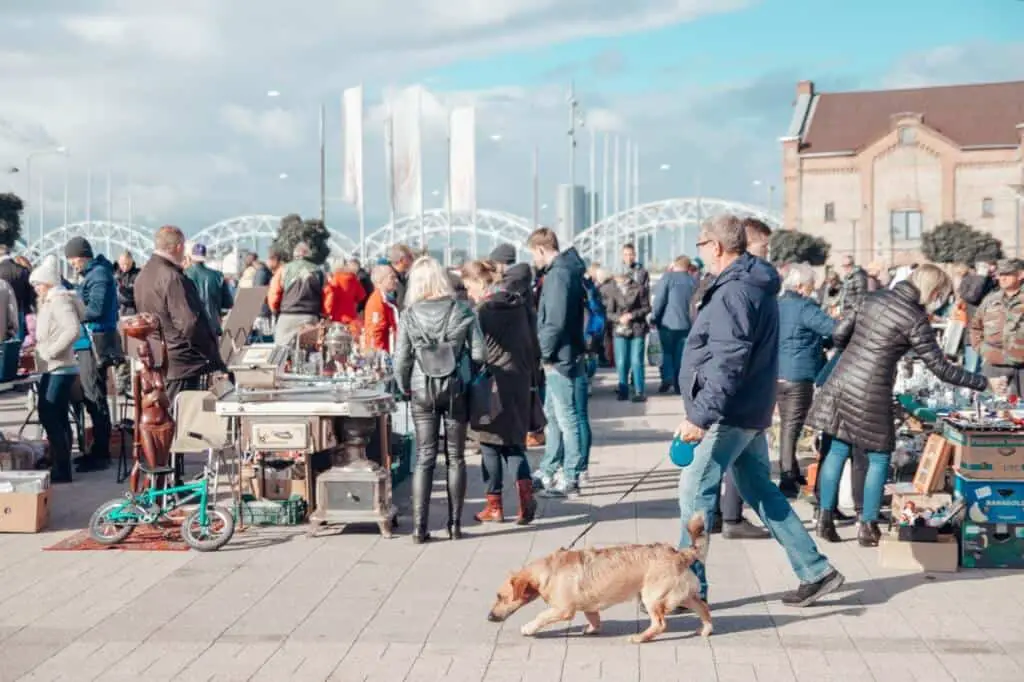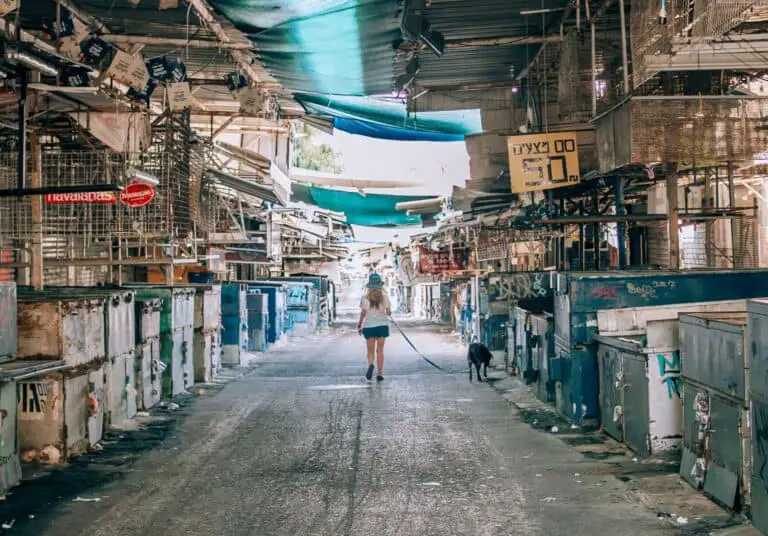Public health safety measures essential to flattening the curve and controlling COVID-19 (coronavirus) are being implemented around the world. Some of the immediate effects of coronavirus on flea markets and antiques are clear. Given the importance of social distancing and associated travel restrictions, flea markets are on the growing list of cancelled events. Antique shops and auction houses are also closing or restricting face-to-face sales. As the necessary changes unfold, however, dealers are trying to keep the antiques business going – even if it’s not business as usual.
The rapid developments point to possible short- and long-term effects of the coronavirus on flea markets and the antiques trade. Here’s an overview of what dealers and customers can expect:
Flea market cancellations

Antique shows and flea markets will have to close due to travel and social gathering bans. Monthly flea markets may recover once the restrictions are lifted. But organisers of weekly flea markets or annual events that attract thousands of vendors and take place during the quarantine may suffer under the current restrictions. Some may even go bankrupt. Other venues are trying to operate while making adjustments. Some auction houses, for example, are staying open.
As a precaution, auction houses are holding video calls for clients to view lots and organising private viewings. Estate sales are also moving to online viewing galleries and purchases. Even antique shops are accepting telephone orders for collection by appointment only.
Are consumers currently in a shopping mood?

Retail therapy is a coping mechanism. Many consumers are turning to online marketplaces for essentials, but they are also buying comfort items. A Red Points survey found that 46.1 per cent of consumers are more likely to buy clothing and fashion online than in-store because of the coronavirus outbreak. You can also pick up some amazing bargains.
Vintage and antique dealers are offering discounts to boost sales in a tough economic climate. Tread carefully when shopping for vintage, however, as budgets are likely to tighten.
Can online marketplaces stimulate the antique industry during the coronavirus?

Online activity has increased. Vendors continue to post goods on platforms like Facebook and Instagram. “Perhaps we can use our time with our devices to rethink the kind of community we can create through them,” says Professor Sherry Turkle, founding director of the MIT Initiative on Technology and Self.
In fact, Facebook auction forums not only host daily live sales, but also offer tips on how to buy and sell antiques online. And as always, be nice to the dealers. Delivery may take longer than usual due to the high volume of mail orders.
Can online antique shopping replace brick-and-mortar antique shops?

When it’s safe to return to more regular outings, people may crave social interaction. For vintage enthusiasts, attending flea markets and auctions are ideal settings for socialising. “Society may come out of the pandemic even more appreciative of these large spaces as opportunities to visually be together,” says Alexandra Lange, architecture critic at Curbed. “After this is all over, I’d like to see more public investment in open, accessible, all-weather gathering places.”
Similarly, the pandemic is shaping social and commercial interaction in potentially lasting ways. In addition to connecting with customers online, antique dealers may see a boost as regulatory barriers to online tools are removed. Katherine Mangu-Ward, editor-in-chief of Reason magazine, says: “COVID-19 will sweep away many of the artificial barriers to moving more of our lives online.
Where to shop for antiques online

There was a time when buyers and sellers had only one real online destination for antiques. Today, however, many virtual storefronts fill the web. Some, like Ruby Lane, screen sellers to ensure higher quality merchandise. Others, like Etsy, offer a wide range of vintage goods, from authentic antiques to affordable kitsch. Exploring the best online vintage shops could be a fun way to spend some of those extra hours at home during the shelter-in-place recommendations.
Future effects of coronavirus on flea markets and antiques

In general, markets have recovered from major health epidemics such as SARS. Although the impact of the coronavirus is proving to be wider and more challenging, the art and antiques market has survived profound economic changes. An increase in the use of technology may prove to be a bright spot for antiques buyers and sellers. Elizabeth Bradley, president of Vassar College, is optimistic about the benefits of virtual reality. “VR allows us to have the experiences we want, even if we have to be isolated, quarantined or alone. Imagine putting on a pair of goggles and suddenly being in a classroom or other communal setting.”
Vintage enthusiasts could one day buy and sell authentic antiques through virtual flea markets. Wherever the antique market finds its groove, enthusiasts will be there.



